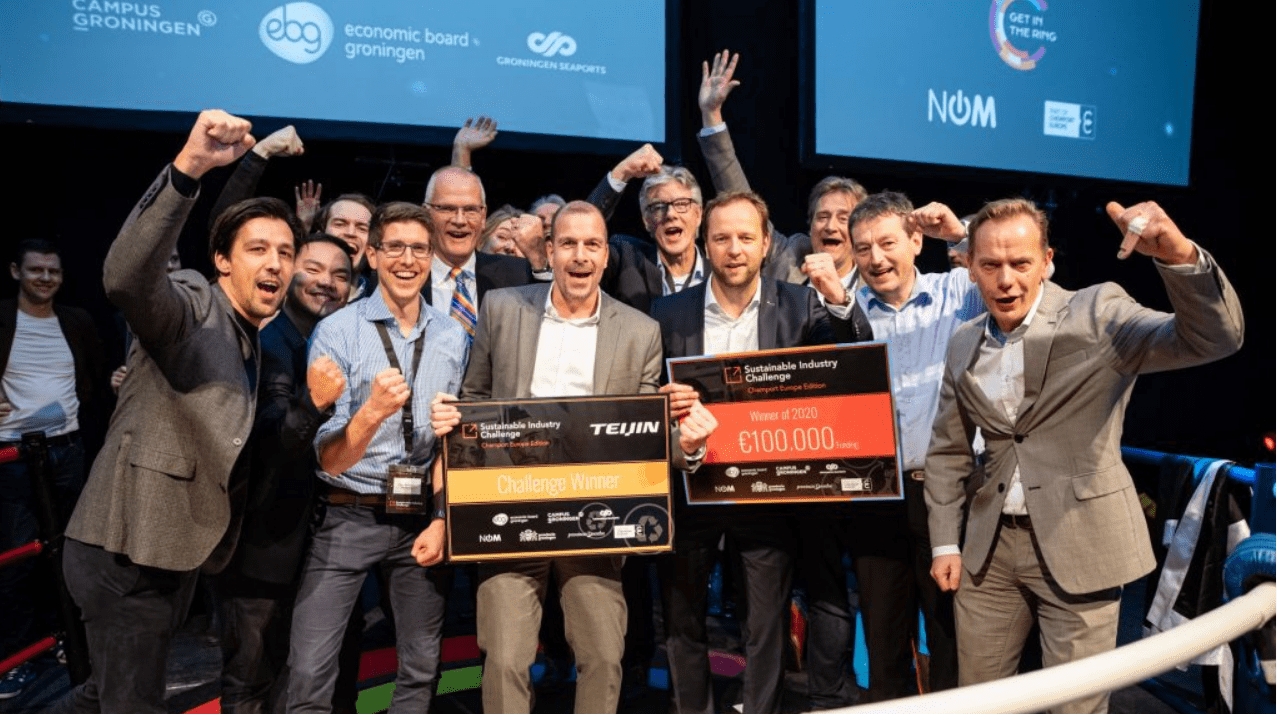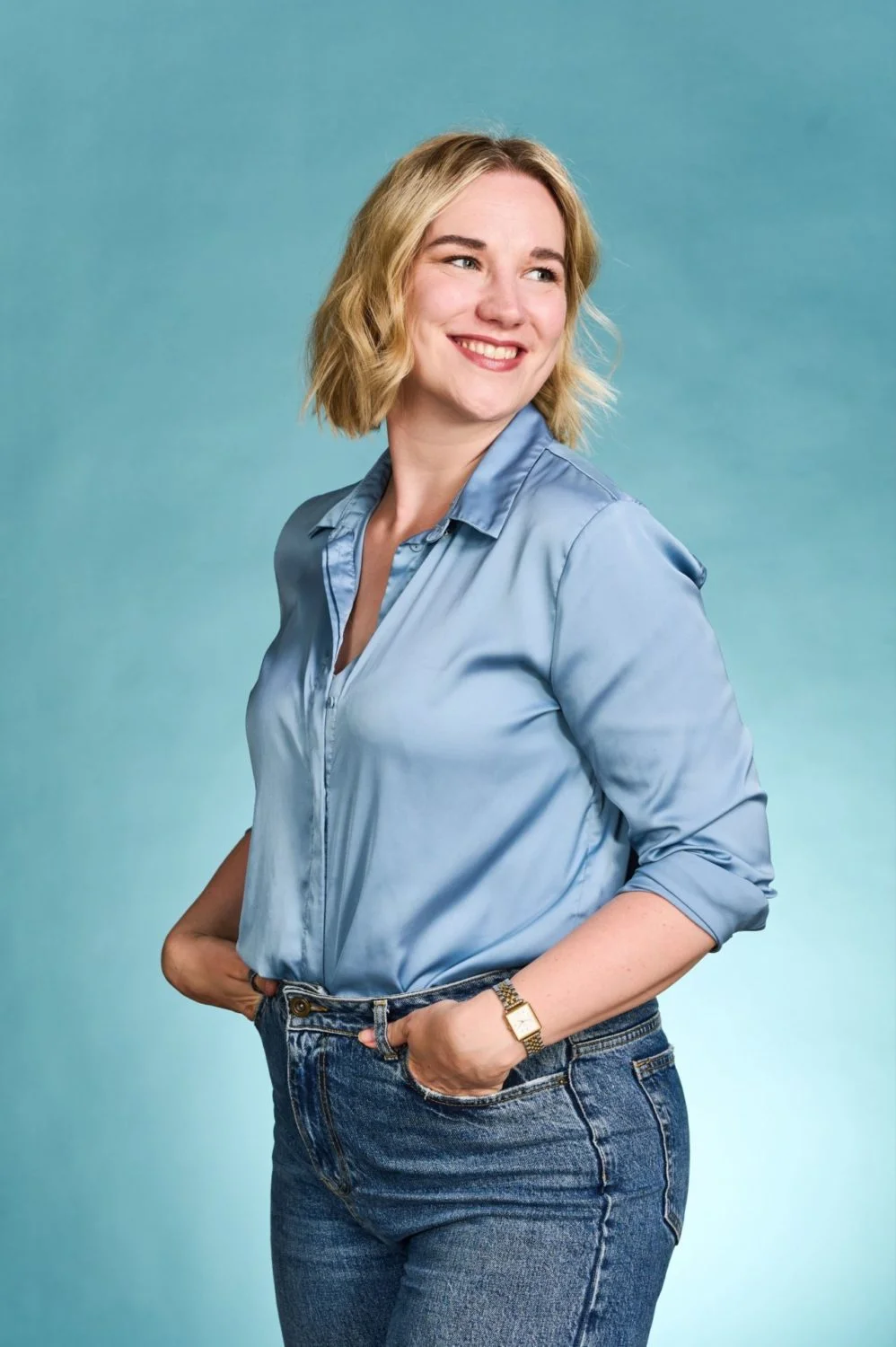Sustainable Industry Challenge: more than one winner

Last year, the Economic Board Groningen (EBG) initiated the ‘Sustainable Industry Challenge: Chemport Europe edition’. Five industrial challenges were presented and solutions from companies all over the world were selected. In January, a winner was chosen from the longlist of 40 companies: German company CFK Recycling presented a potential solution for the recycling of Aramid fibres embedded in products like composites, a challenge set by Teijin Aramid. Ten months later, it is clear that there is more than just one winner.
High ambitions for innovative solutions
‘Our aim was to provide input for the dynamics of the Chemport Europe ecosystem through this Challenge’, says Akke Groenewoud of the EBG board. Five companies presented an innovation problem they couldn’t solve themselves just yet for the Challenge. Through a specialised firm, The Unknown Group, these challenges were brought to the attention of innovators from all over the world who might have a solution. ‘The idea behind the challenge was to think big on acquisition: not just talk to companies one on one, but on a more robust scale.’
Scary but succesful
‘It is a bit scary to present a problem to the world’, says Bert Gebben, Principal Scientist at Teijin Aramid and involved in submitting the case. ‘After all, the competition is watching as well.’ The result, however, was a pleasant surprise: ‘We got into contact with a number of interesting parties, much faster than we could have managed ourselves.’
Groenewoud expected some fifty responses on the Challenge, the Unknown Group believed there would be a hundred more. After a search process that took a month and a half, no less than 228 potential solutions were registered. These were all presented in a comprehensive manner, and included a business case. Eventually, 43 companies were invited to present their solutions in Groningen. ‘They had to pay their own travel and lodging, and in the end, representatives from 39 of those actually came in January.’ As they travelled to Groningen from all over the world, the EBG also organized a meeting with other companies from the Groningen area to make their investment more worthwhile – and potentially leading to interesting new leads for the region.
The winner
‘We spent a day talking face to face to the five finalists in our challenge’, says Jan Roos, Director Energy Transition and Sustainable Development at Teijin Aramid. ‘We brought colleagues from different departments with us, like Marketing, Business, and Technology.’ After an epic battle with Immaterial Labs, the overall winner was announced to be CFK Recycling, and was awarded the €100,000 prize. ‘But we also kept in touch with the other finalists’, adds Gebben. ‘Some contacts faded a little, but apart from CFK, we are still talking with the runner-up.’ Furthermore, from the earlier stages of the Challenge, they now have a list of more than twenty innovative companies interested in cooperation.
…and many more winners
This is the most important result of the Challenge, says Groenewoud. ‘It is not just about the winner, but about the 250 interesting companies that are now in the Chemport Europe pipeline.’ EBG has handed the dossiers of all participants in the Challenge over to Chemport Europe. A business development team is following up on this. ‘Their challenge is now to analyse which of these companies are an asset to their ecosystem. Which of them have added value for the ambitions of the region?’ This should lead to cooperation, contracts and new ideas for products and productivity, and to new businesses opening shop in the Chemport Europe Region. ‘The Challenge has brought a lot of input, in a much more efficient way than individual Chemport company representatives flying around the world.’
Cas König, CEO of Groningen Seaports, is glad with the overall outcome of the Challenge and the winner in particular: ‘CFK offers a solution for recycling composites from discarded windmill blades and in the automotive industry. This is a good example of production chain integration from our industrial partners.’ He adds that Aramid recycling fits perfectly in the regions ambition for a sustainable chemical cluster, and the focus of Teijin Aramid.
Roos agrees: ‘This Challenge was a good way to find interesting new contacts. The feedback from the talks we had with the participants were also very interesting for the development of our own strategy. It has brought us a lot in a very efficient manner.’


